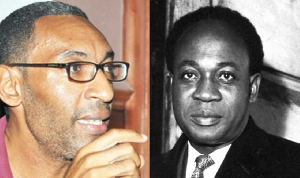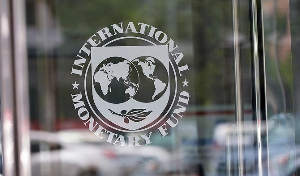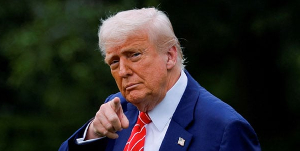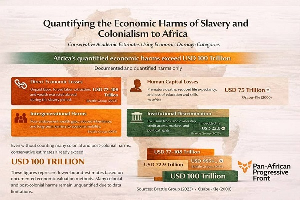Sometime in 2009, the Mills/Mahama administration promised that a certain STX Housing deal was going to provide about 200,000 affordable housing units to the country’s security agencies at an estimated cost of $10 billion.
Nevertheless, due to irreversible negligence on the part of the Mills/Mahama administration and the boardroom tussle between the project supervisors—STX Korea and GKA Airports Company Limited (STX Ghana), the deal unfortunately hit a dead end.
The late President Mills subsequently had this to say during a press conference: “We have some difficulties with the STX project, and as a president, I am eating a humble pie to say that we are looking for alternatives.”
The overarching question every concerned Ghanaian should be asking then is: What actually happened to the STX Housing deal?
Apparently, some credible sources had it that although the Government of Ghana fulfilled its side of the deal, it regrettably failed to take legal action against the partners in the STX deal for blatantly abrogating their side of the contract.
Interestingly, paragraph 3 of the Off-Taker agreement states: "The Government of Ghana, hereafter, GOG, hereby undertakes to issue and in favour of STX a government guarantee, under Section 10 of the Loans Act 1970 (Act 335) securing its financial obligations in relation to the GOG Off-Take, valid and sufficiently viable to enable STX to obtain funding from financiers and investors for the forty-five percent (45%) of the 200,000 housing units to be built under the Housing Project. In relation to this Off-Taker agreement and the
government guarantee, the GOG shall waive its sovereign immunity."
Needless to say, if the Government of Ghana had defaulted on its agreement with STX, there could have been real and binding legal consequences.
Critical observers, therefore, would argue somewhat solemnly that in all the contractual documents, there seemed to be no such legal statement made to ensure the responsibility of STX to honour its side of the deal.
It, therefore, came as a surprise to some of us when it was later reported that Ghana had allegedly lost a staggering $300 million in spite of the fact that the deal did not materialise.
Interestingly, however, sources had it that at all material times, it was the then vice president's office, John Dramani Mahama, that handled issues concerning the STX Housing deal.
Strangely though, President Mills of blessed memory seemed apocalyptic about the whole deal, judging from his State of the Nation address in 2010, when he had this to say: “The Vice President had travelled to Seoul, Korea, to nail the coffin of STX.”
We can recollect, albeit with extreme sadness, that although the STX Housing loan agreement, which was supposed to provide affordable housing units to the security agencies, did not materialise, the then vice president, John Dramani Mahama, is alleged to have given us a bill in excess of $300 million. How strange!
In a related development, after the failed deal with STX to build 30,000 housing units for the nation's security agencies, the NDC administration entered into another deal with the GUMA Group for the construction of 500 housing units.
The deal, which was alleged to have been negotiated by the then vice president, John Dramani Mahama, was widely criticised by various stakeholders, just as was the STX deal, following the decision to sideline local construction firms in favour of the foreign company.
Suffice it to emphasise that the unusually high cost of the project was also a source of concern to many.
Little did some doubtful Ghanaians believe former Attorney General, Mr. Martin Amidu, when he told Ghanaians that our late President, Mills, set up a committee to investigate the purchases of five Brazilian aircraft, including Embraer 190 aircraft and hangers for the Ghana Armed Forces, negotiated by the then vice president, John Dramani Mahama.
In fact, if we are to mull over Mr. Amidu’s exposition, we can infer that the late Mills lost trust in his then vice president, Mahama.
Some well-meaning Ghanaians thus believe that it was due to the countless dubious agreements that made Ghana’s debt balloon from an arguable meagre GH9.5 billion in 2009 to an incredible GH122.4 billion by December 2016, with little to show for it.
Don’t get me wrong, my dear reader; there is absolutely nothing wrong with borrowing money and investing it prudently. However, there is everything wrong with reckless borrowing.
Indeed, it is irresponsible for public officials to secure loans in the name of Ghana and would end up stashing, misappropriating, and embezzling the funds to the detriment of poor and disadvantaged Ghanaians.
My dear reader, tell me, if the rampant bribery and corruption, dubious judgment debt payments, stashing of national funds by some greedy opportunists, misappropriation of resources, and crude embezzlement of funds meant to provide developmental projects by some public officials do not warrant criminal charges, then where are we heading as a nation?
It would, however, appear that political criminals have the licence to steal. And, if that were not the case, how come the offending politicians and their minions often go scot-free?
How on earth can individuals commit unpardonable crimes (gargantuan corruption) against the state and get away with their misdeeds?
In the interim, the crucial question we should be asking is: will the day come when “Ghana’s political criminals” find they have nowhere to hide?
As a matter of fact, the traditional exemption of heads of state from prosecution despite the evidence of a case to answer is wrong, so to speak.
If bribery and corruption, dubious judgment, debt payments, stashing of national funds by some greedy opportunists, misappropriation of resources, and crude embezzlement by some politicians do not warrant criminal charges, then where are we heading as a nation?
To me, Ghana’s 1992 Constitution has to be reviewed, and the irrational and inexpedient clauses, such as the indemnity clauses, must be expunged and tossed into the dustbin accordingly.
How serious are we as a nation when we can only descend heavily on the mobile phone, the goat, cassava, and plantain thieves, and let go of the hardened criminals who hide behind politics and persistently dip their hands into the national coffers?
Opinions of Monday, 15 July 2024
Columnist: Kwaku Badu















